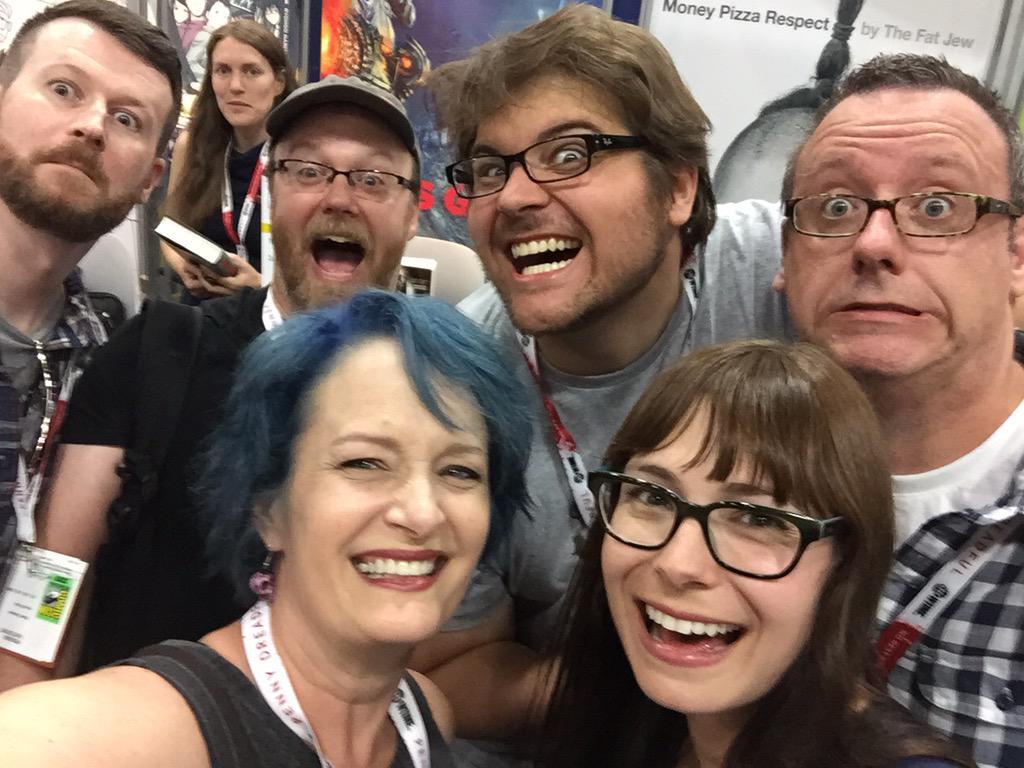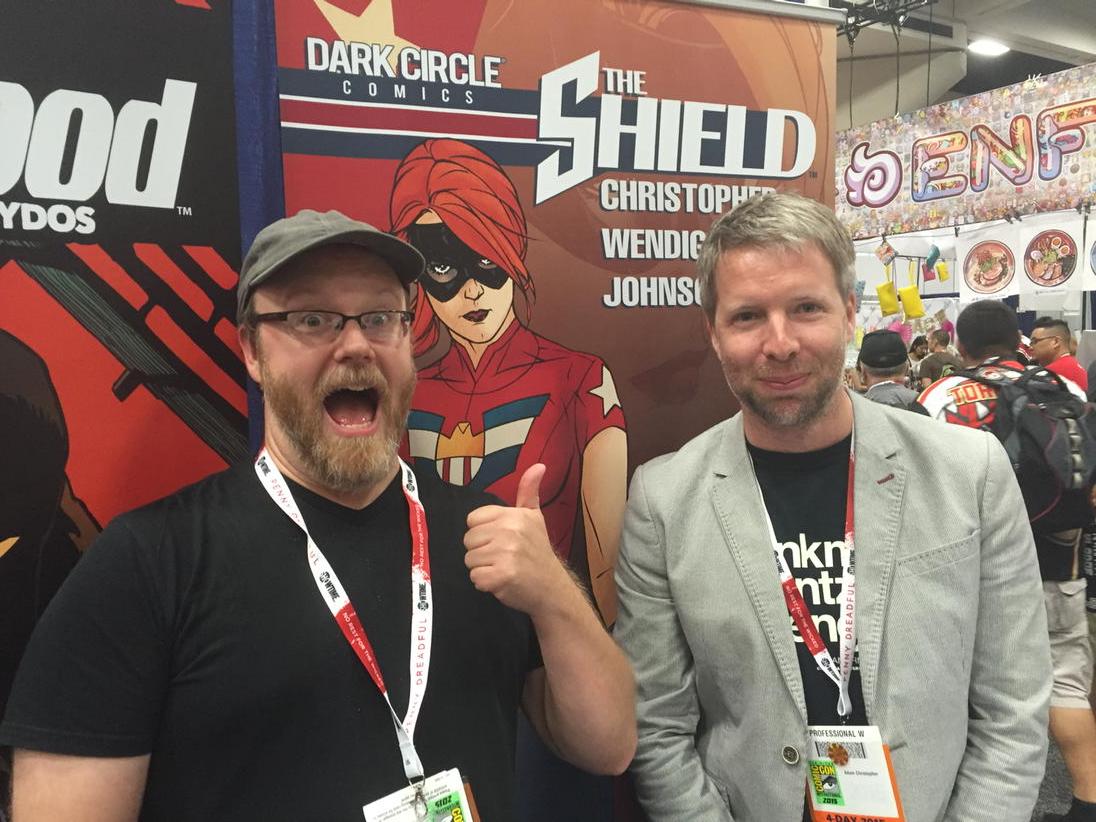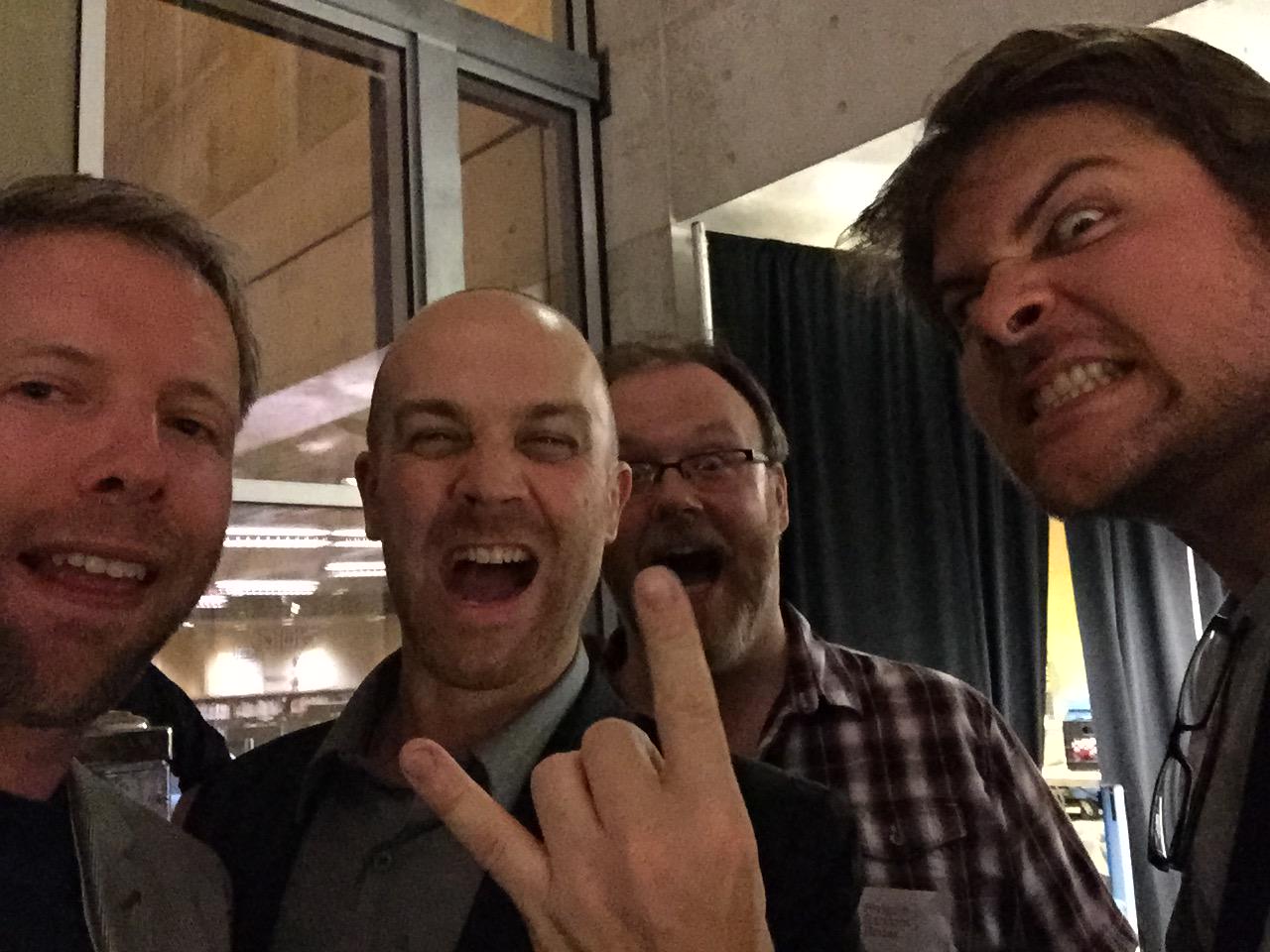Figuring out this writing thing is hard. It’s often a lonely job, and one that comes with unpredictable periods of hurry-up-and-wait as part of the package. Keeping up with changes and new innovations in the industry can be a part-time job all on its own. It’s also a career that – sometimes, unfortunately – the non-writerly people in your life might not take seriously.
There are a million reasons people might dismiss you and your work: You haven’t sold a book yet (implied: “It’s your hobby.”); you’ve sold stories or books but “I’ve never heard of you”; writing isn’t your main source of income (implied: “You’re not successful enough”); you write genre fiction (implied: “So you don’t write real books.”). My blood is boiling just writing those down, and recalling the slight disdain with which they’ve been said, in various forms, to me.
Even if you haven’t heard the above, even when you have a kick-ass support group, or have checked something cool off on your own writerly bucket list, a huge amount of us still have Writer Brain to contend with. That little voice that invites in its buddy Imposter Syndrome and starts a medley of you’re not good enough.
Do not listen to them, in any form.
Easier said than done, I know, and it’s something that – three books and a palmful of short stories in – I still constantly struggle with myself. So, I put together a list of things that have helped me shove doubt back out the door when it comes creeping in. If you have more to add, please put ‘em in the comments! Ready? Here we go:
Tell people you’re a writer. Say it out loud. Type it into the twitterboxes. Stick it in your social media profiles. It took me a long damned time to be able to say “I’m a writer” without ducking my head or appending a sheepish little laugh-and-shrug combo – not because I’m ashamed of what I do, but because I felt like I wasn’t far enough along in my career to claim the title. I might never cross whatever arbitrary success line my brain is drawing. So, my brain (and Imposter Syndrome) can suck it: I’m a writer. If you put pen to paper because you like telling stories, so are you. Say it with me: I’m a writer.
Celebrate your victories. I’m not just talking about sales here – that’s an end goal, but so much happens before you get to that point that’s also part of your job as a writer. And, after you’ve published your work, there are other cool things that happen that don’t always get counted as “big” wins. This is so subjective, I can’t possibly hit on everything, so some examples! (Psst, kick some more out in the comments if you’re so inclined!)
Do numbers motivate you? Do you like to see evidence of your progress? I have friends who put stars on a planner for every 500 words they write, or put a sticker on a calendar for every day they worked on a project. You can do it with spreadsheets or find a website that lets you fill up a progress bar.
Did you send a story out into the wild? Go you! That’s damned scary. Did it get rejected and you sent it right back out to another place? High five!
Did someone leave you a good review? Comment on your fanfic? Ping you on Twitter to go “MORE PLEASE”? None of these are little things. Let yourself feel good about them!
Find other fans. We’re out there, and we have keyboards. When Great-Aunt Sally is disappointed that you’re not writing The Great Gatsby for this generation (or that you are, but with spaceships), it’s nice to know that there are people out there who think genre fiction is the best thing ever. Follow other writers and fans on Twitter or Tumblr or wherever people are hanging out online these days. Participate in the conversations at your favorite blog. If you have the ability to attend a convention, find one near you and go! It’s so damned easy to feel alone, that it’s validating as both a writer and a fan to know that we’ve got this big huge global community, and it’s got our backs.
Accept or issue challenges. Participate in writing challenges if you find yourself in need of a kick in the ass, or start them if a friend asks for the same – I see people offering up 1k/1 hour sprints, or starting early morning (or late night!) writing hashtags. Check out the flash fiction prompts Chuck issues on Fridays, or his open critique threads. During NaNoWriMo, see if your regional coordinators are hosting any write-ins at local cafes or bookstores. If you can’t make it to an event in meatspace, Google Hangouts and Skype offer a way to have virtual ones.
Raise each other up. Like I said, we’re in this together. Cheer each other on when good things happen. Wave your +3 Pompoms of Encouragement and offer support when someone is feeling down. It can take whatever form you’ve got the time and spoons for: a “you can do it!” tweet, sending virtual hugs, whiskey, or kittens of support, an offer to chat or email if you’re at that comfort level with them. We spend a lot of our days staring at the pages. It’s good to know there are people out there beyond them.
Remember: You are not alone in this.
You are a writer, and your words are important.
Go forth and tell great stories.
I’m rooting for you.
* * *
Lauren M. Roy spends her days selling books to bookstores, and her nights scratching out stories of her own. She is also a freelance writer for tabletop roleplaying games. Lauren lives in southeastern Massachusetts with her husband, their cats, and the ghosts of houseplants she forgets to water. Her first novel, Night Owls, was published by Ace in February 2014.
Her new novel is Fire Children:
Fifteen years have passed since Mother Sun last sent her children to walk the world. When the eclipse comes, the people retreat to the caverns beneath the Kaladim, passing the days in total darkness while the Fire Children explore their world. It’s death to even look upon them, the stories say.
Despite the warnings, Yulla gives in to her curiosity and ventures to the surface. There she witnesses the Witch Women – who rumors say worship dead Father Sea, rather than Mother Sun – capturing one of the Children and hauling her away. Yulla isn’t the only one who saw the kidnapping; Ember, the last of the Fire Children, reveals himself to Yulla and implores her to help.
Trapped above and hunted by witches and the desert wind, Yulla and Ember must find a way to free his siblings and put a stop to the Witch Women’s plans, before they can use the Fire Children to bind Mother Sun herself.
Fire Children: Indiebound | Amazon | B&N
























